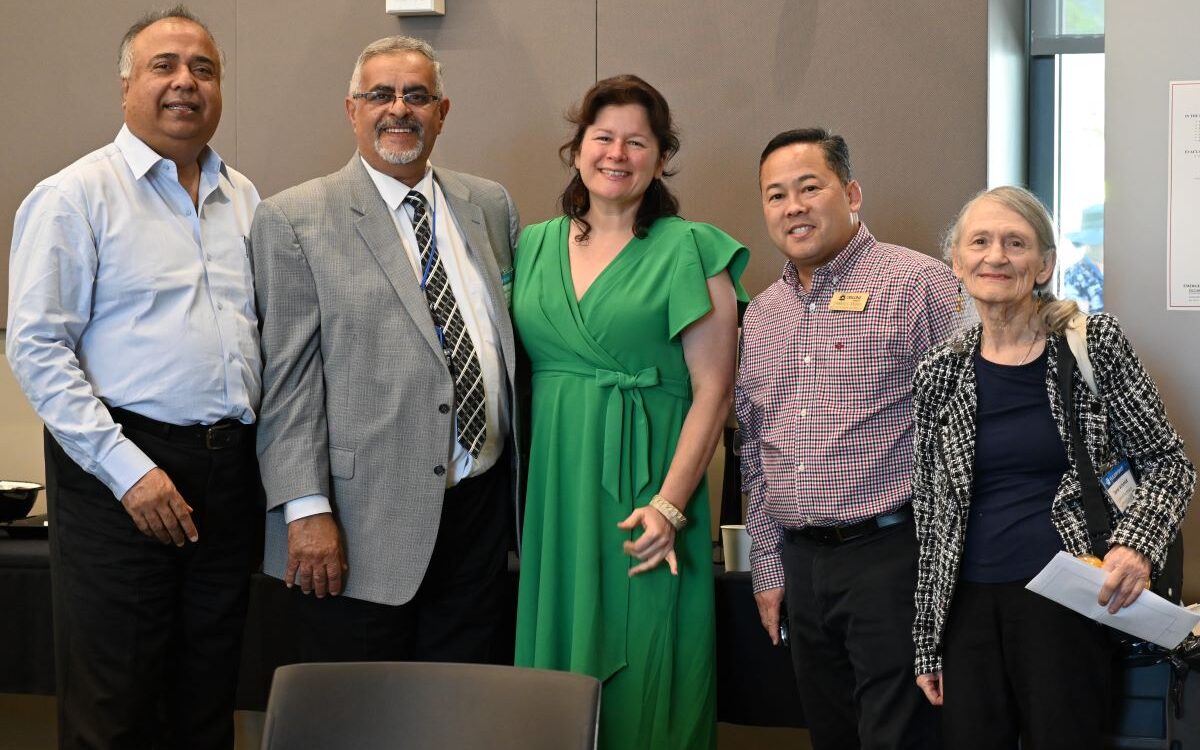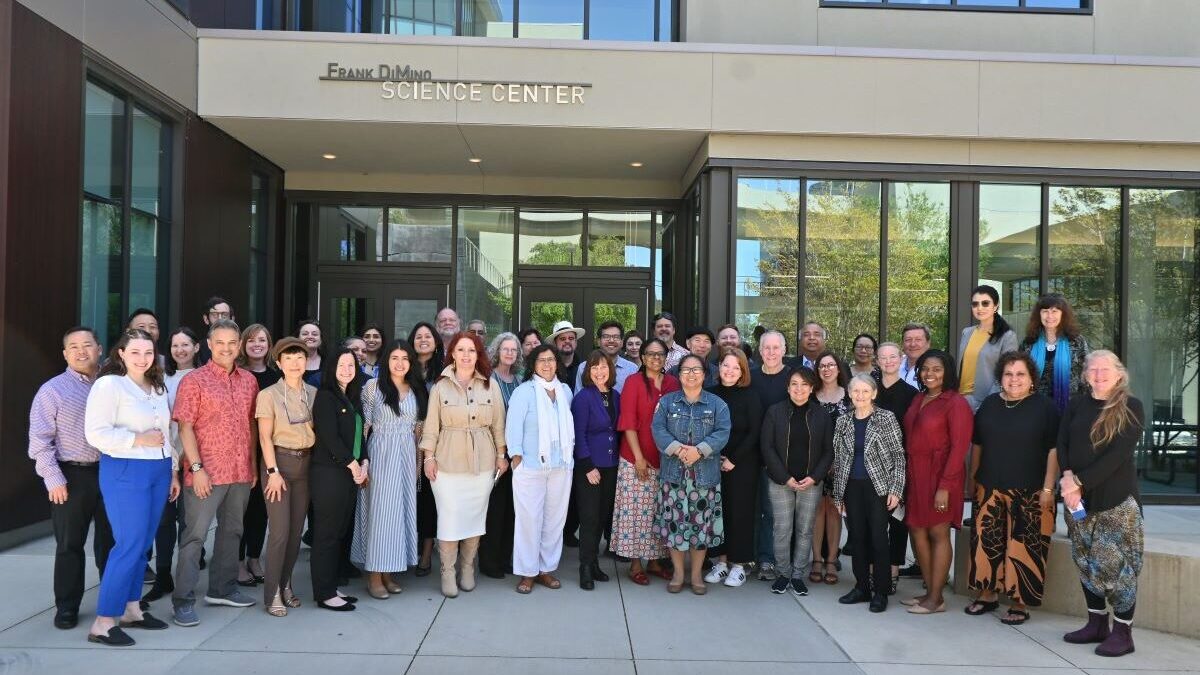
The Fulbright Program, in partnership with the Ohlone Community College District, brought together over 40 Fulbright Scholar Liaisons from community colleges across the United States in April 2024 to exchange knowledge and resources on increasing the participation of Community College faculty and administrators in the Fulbright Program. Fulbright Scholar Liaisons are faculty and administrators who have committed to educating their peers on campus about Fulbright opportunities and increasing participation in Fulbright through institutional-level support. They in turn form a network of Liaisons dedicated to peer-to-peer mentorship.
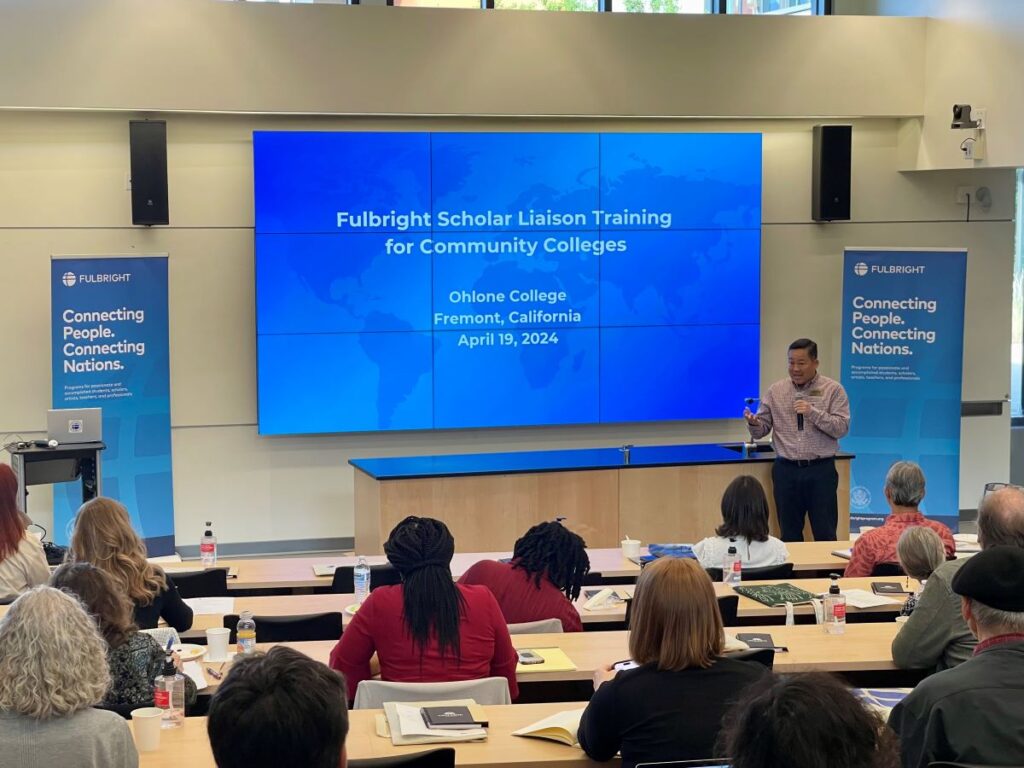
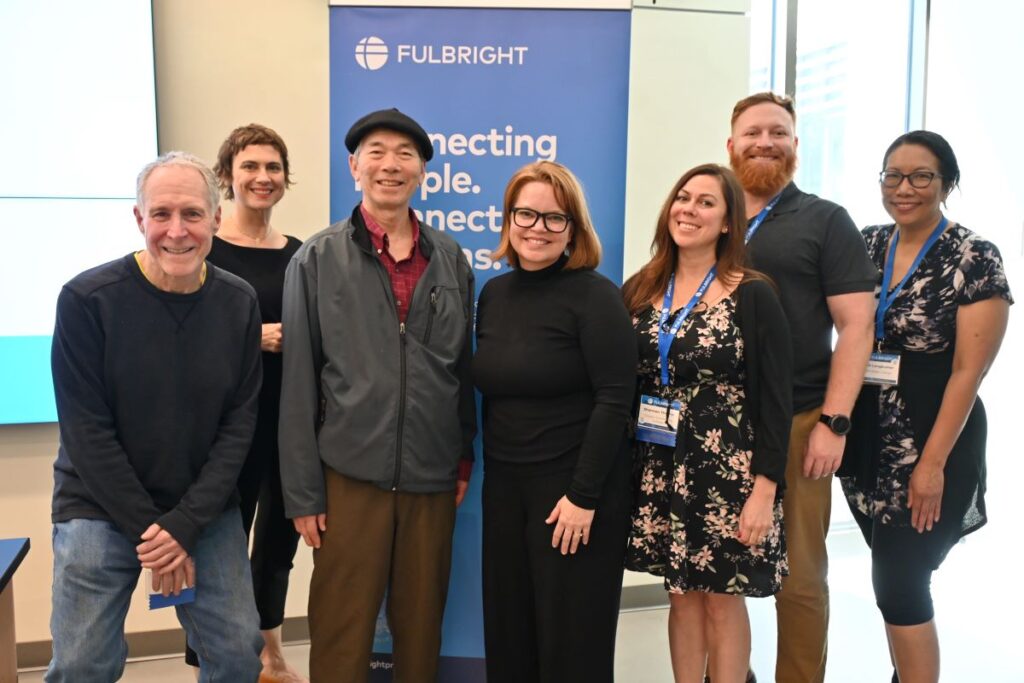
Ohlone College President and Superintendent Charles Sasaki welcomed the participants to Ohlone’s main campus in Fremont, California, in the San Francisco Bay area. Sasaki spoke about how his experience taking part in three Fulbright U.S. Scholar Program International Education Administrator (IEA) Seminars, to Germany, Russia, and Taiwan, helped him to make international connections and advance his career as a multi-cultural community college leader.
The trainings were a part of the State Department’s commitment to engage with community colleges to ensure that Fulbright Program exchanges represent the full range of higher education institutions in the United States. As unique, accessible, and valuable institutions for people of all socioeconomic and cultural backgrounds, community colleges are an important part of Fulbright’s effort to represent the breadth of the United States abroad.
At Ohlone, participants heard directly from Fulbright Scholar Alumni Ambassadors, as well as Fulbright Scholar Liaisons who are also alums of the Program, about their experiences living and teaching abroad through Fulbright. These speakers shared stories about cultural competence they gained by being a part of their host academic institutions and communities. Fulbright Program staff shared further information and resources about how more institutions could take part in these opportunities.
Liping Liu, a Fulbright Scholar Liaison and professor at the University of Hawaii, Maui College, reflected on her experience of the workshop. “I learned about the role of the Fulbright Scholar Liaison in Community Colleges and ways I can support faculty and administrators at UHMC in applying for the Fulbright Scholar Program,” she said, noting that hearing directly from Fulbrighters about their experiences was very helpful, as were the resources and toolkit provided. “It’s time to energize our college administrators and international education champions on our campus. Mahalo nui loa!”
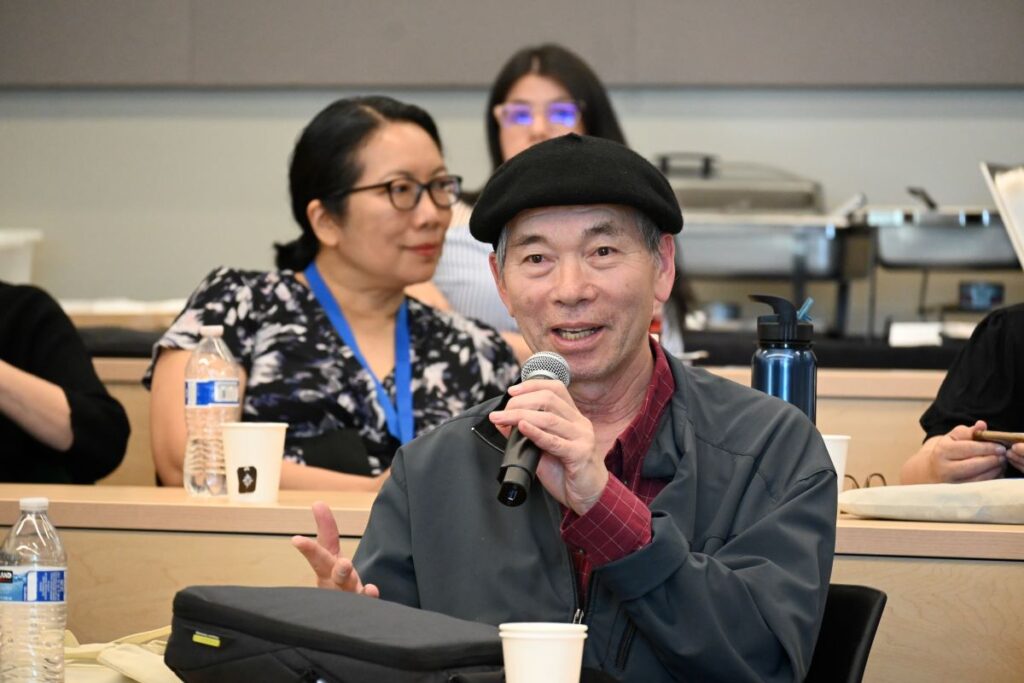



The training was geared toward supporting community college faculty interested in the Fulbright U.S. Scholar and Fulbright Specialist Programs. Presenters walked attendees through a toolkit with a handbook on the role of the Scholar Liaison, information on events such as webinars and monthly Liaison Linkups, and resources such as a Liaison LinkedIn group for peer advice.
Sessions focused how to become a more successful Liaison, providing examples from other campuses; how to invite Alumni Ambassadors and Fulbright Program staff to present virtually or in-person on Fulbright Program opportunities; and how to apply to host international students and faculty through the Scholar-in-Residence, Outreach Lecturing Fund, and Fulbright Foreign Language Teaching Assistant Programs.
The group discussed how hosting a Fulbright Scholar from another country can build awareness of Fulbright opportunities among students, faculty, and administrators. One Fulbright Scholar Liaison, Ming-huei Lam, from East Los Angeles Community College, shared her institution’s experience hosting noted Irish writer and journalism professor Tom Felle as a Scholar-in-Residence (SIR). She emphasized the profound impact hosting this scholar had on the community, faculty, and students. Throughout one academic year, over 1,500 students, staff, and community members participated in the discussions, lectures, and workshops hosted by the scholar.
This kind of experience is often the first exposure a student or faculty member will have to exchange programs like Fulbright, and can inspire them to apply for their own Fulbright award. For those who do not have the opportunity to go abroad themselves, interacting with foreign students and visiting faculty can provide valuable international perspectives they can learn from on their own campus.
Presentations and discussions also highlighted best practices for working with campus leadership to create policies that enable faculty to balance their participation in programs like Fulbright with their teaching obligations, and how to foster a campus culture that values international experience.
In addition, representatives learned about other international opportunities available to students at community colleges and AANAPISIs through U.S. Department of State’s Programs. These programs serve as foundational opportunities for community college students who go on to complete a bachelor’s degree and become eligible to apply to the Fulbright U.S. Student Program.
